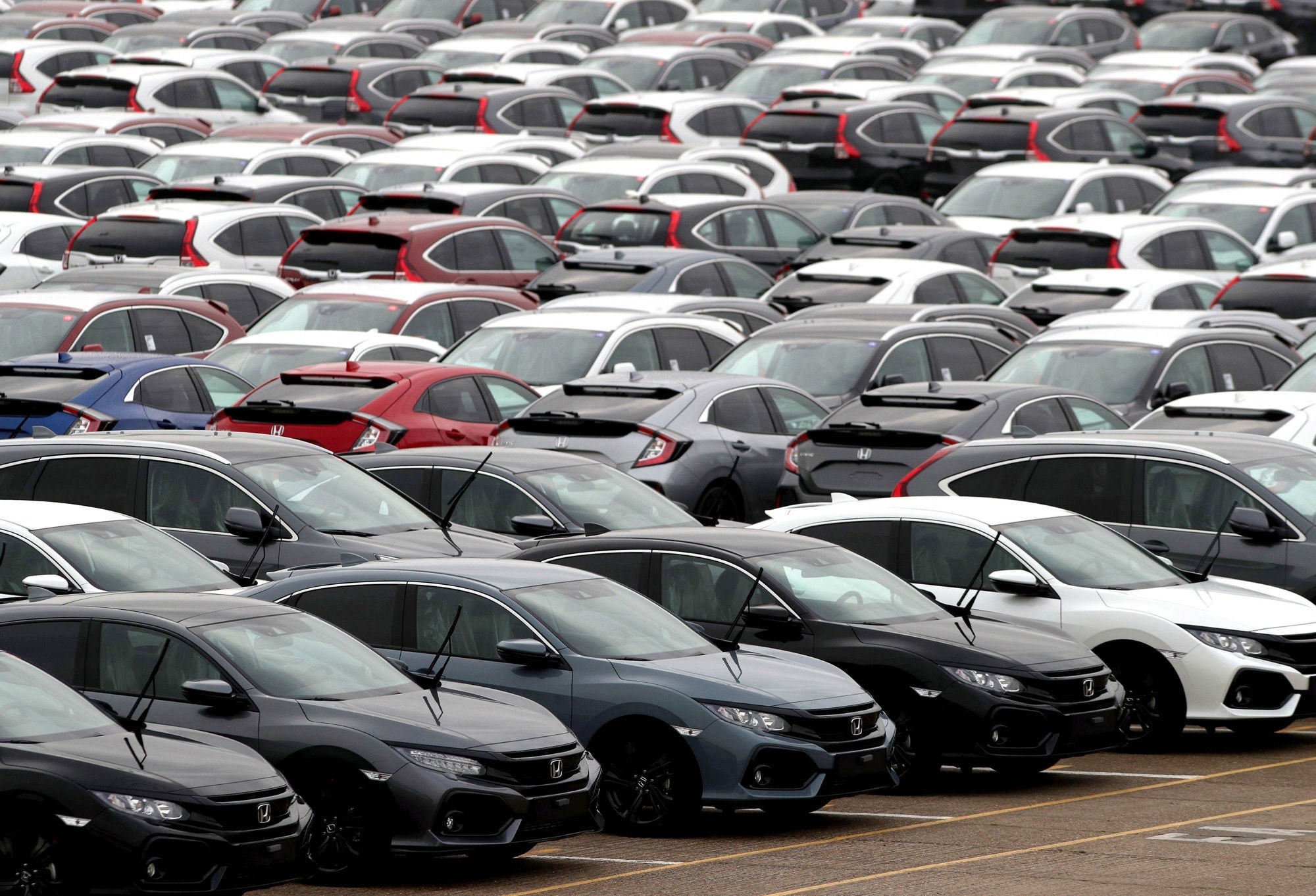Would you trust a car salesman to protect you from unemployment?
Twelve-month ‘job loss protection’ now comes as standard on adverts for big-ticket items. But it won’t save you from the recession

The financial experts are screaming at us to double down on debt and squirrel away those savings in a bid to shield us from the recession.
This is definitely not the time to splash out on a big purchase.
With September usually providing a car sales boom thanks to new registration plates, the last round of figures from the SMMT, the trade body that represents the automotive industry, suggests pent-up demand is already fuelling an 11 per cent monthly rally with just under 175,000 new cars registered in July across the UK.
But that’s not hiding the fact that even the industry itself is predicting a £20bn revenue hole for 2020, as that economic uncertainty puts the brakes on.
That all explains the slightly desperate and increasingly widespread sales pitch that suggests you’re perfectly protected from the impact of the economic downturn if you make a big one-off purchase. Fork out for a new car (or kitchen, or bathroom, or even a shiny piece of especially expensive tech) and you’ll seemingly enjoy 12 months job loss protection as part of your deal.
These policies are touted as short-term guarantees that you won’t be liable to make the usual monthly payment if you lose your job and come “free” as part of the finance package.
It all sounds very sensible. Recent research found that although two-thirds of Britons have no idea what their annual motoring bill is, our cars are the most expensive monthly outgoing we have after our mortgage or rent, warns comparison site Know Your Money, and come in at an average of around £5,750 including car finance.
The policies currently being touted on the forecourt are comparable to PPI, and though no money changes hands specifically for these policies as it did during the PPI scandal, they will still only cover a single financial obligation from all your monthly outgoings for a short period – typically a maximum of seven months – and only if you lose your job in the first year after your purchase.
Astonishingly, some of these job protection policies don’t even cover the payment, they just delay it, warns Garry Webb of Roxburgh Financial Management, which could quickly lead to financial issues for years to come.
He says: “These ‘job loss cover’ plans seem to be only providing a payment waiver rather than covering the payment itself. That would mean the client still has to make up the payments later, and it only provides cover for up to seven months. I would be concerned about any potential effect on credit files if this happened.
“In the current Covid climate, there is a greater chance of a client being off work through illness, sickness and injury. In fact, you can argue that risk has increased because of Covid.”
John Ellmore, the director of Know Your Money, agrees. “While in theory, these schemes can seem attractive, in reality, the terms of the schemes limit their usefulness,” he explains.
“With conditions around the circumstances of your job loss, your employment situation and when you can get a payment waiver, the schemes won’t be able to help everyone.
“And with so much anxiety about job security, it’s debatable how much reassurance these kinds of schemes will give to potential car buyers. If you are uncertain about your job security, buying shouldn’t be a priority, despite the initiatives like the 12-month protection.
“Even without finance, cars are incredibly expensive to run, with our research showing an average annual cost of £3,406.80, and with housing, bills, and other living costs to pay for as well, unemployed individuals would still be facing numerous financial pressures even if they did benefit from a job-loss protection scheme.”
But even if you decided to bite the bullet and go ahead – despite the economic warning signs, and even the wide array of far cheaper nearly new alternatives on offer – there are far better options for covering all your monthly outgoings, not just transport, if you lose your job.
Webb says: “The effective and targeted use of income protection plans remains the cornerstone of financial planning as those insurance products will run for longer than seven months, potentially until retirement, and replace a client’s income, rather than cover a specific type of repayment.
“They also have an excellent payout rate with over 90 per cent of claims being paid on average.”
Premiums are also cheaper than many people may expect. For example, a 35-year-old non-smoker could insure a monthly income of £1,500 with The Exeter from around £16, according to protection adviser LifeSearch.
Join our commenting forum
Join thought-provoking conversations, follow other Independent readers and see their replies
Comments
Bookmark popover
Removed from bookmarks